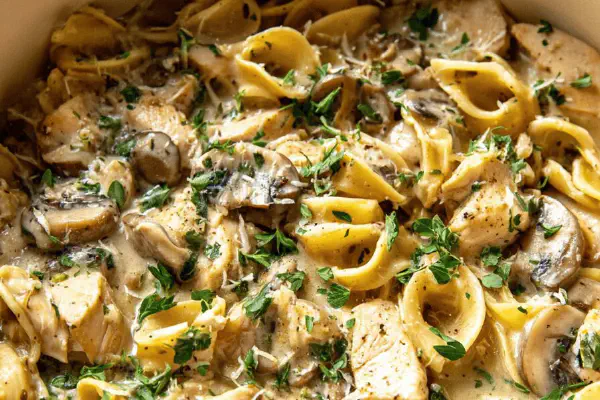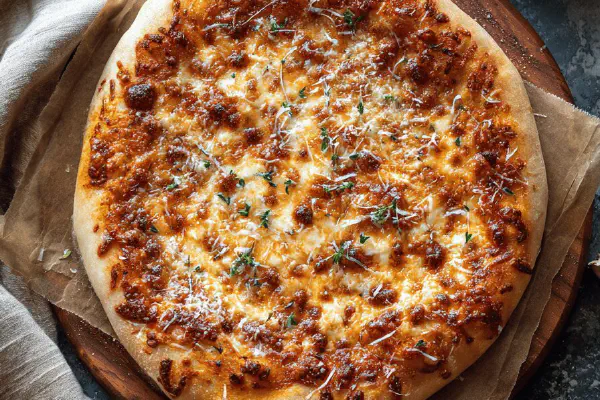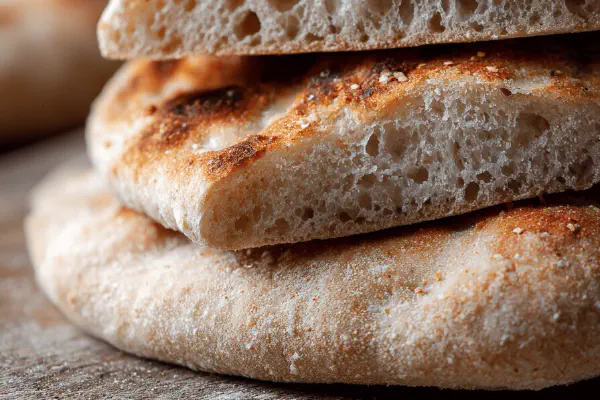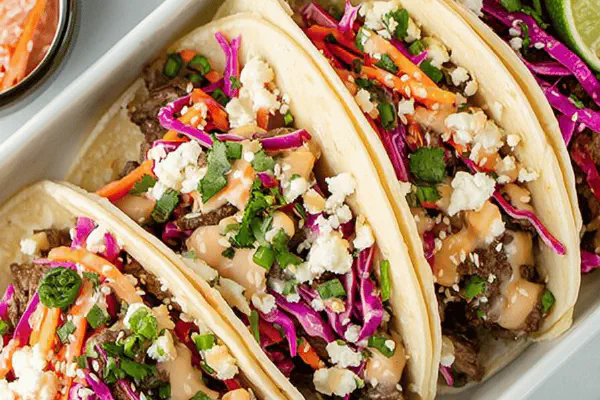Featured Recipe
Yogurt Flour Pizza Dough
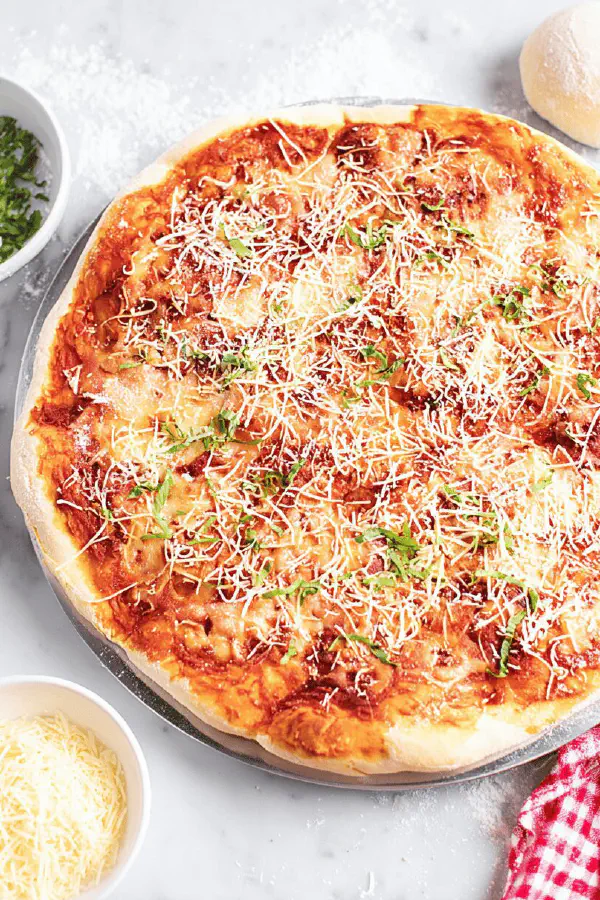
By Kate
"
Simple dough made from Greek yogurt and flour. Mix, rest, knead. Parbake, top, bake again. Flexible toppings. Greek yogurt gives tang and moisture, flour provides structure. No yeast. Fast, easy, reliable. Ideal for quick homemade pizzas when time is tight. Use all-purpose or bread flour, adjust moisture. Parbaking creates stable crust that won’t sog. Cheese melts, sauce bubbles, edges crisp. Substitute non-dairy yogurt or add herbs for twist. Keep flour handy for sticky dough. Watch dough texture, not clock. Visual and tactile cues lead to best results.
"
Prep:
20 min
Cook:
18 min
Total:
50 min
Serves:
8 servings
pizza
dough
Italian-American
easy recipes
quick meals
Introduction
Skip yeast, no rising drama. Two ingredients form the backbone here – Greek yogurt and flour. Simple, quick, forgiving. Tangy yogurt adds moisture and a bit of elasticity; flour keeps it together, gives chew. Dough is sticky, a little shaggy, but resting in fridge chills and hydrates the flour, which tamps down stickiness and helps kneading. Parbaking crust is crucial. It’s a shield against sog, helps crust hold under sauce and cheese weight. Overdo it and crust turns cracker-thin and brittle; underbake and dough sticks, drags toppings. Watch the edges. They tell you when crust grabs hold around 475°F oven heat. Toss in garlic powder and smoked paprika in dough mix for a subtle smoky slant, elevates flavor with minimal fuss. Pepperoni crisps up, cheese melts into puddles. Fresh basil steals the show last second. For a twist, try swapping whole wheat flour or adding a spoon of sun-dried tomato pesto in the sauce layer. The kind of pie you make on a whim but still impress. No need to be a pro. Just trousers down and shoulder it. The oven hums, crust browns, kitchen smells like promise.
Ingredients
About the ingredients
Greek yogurt needs to be thick, plain, unsweetened – thinner yogurt wrecks dough consistency, too soft and sticky to manage. Full-fat Greek yogurt gives better mouthfeel but low-fat works in pinch. All-purpose flour is easiest and forgiving; bread flour yields chewier crust if you want that bounce. Blend in a pinch of garlic powder and smoked paprika into flour for flavor depth baked right into crust. Cooking spray helps crust release but olive oil brushed on edges adds a nice golden touch and prevents drying out. If sticky, dust hands with flour sparingly – too much and dough stiffens, gets tough. Basil leaves fresh, tear gently rather than chop to release oils but avoid bruising. Parmesan grated fresh wins hands down over powder-this for kick of nuttiness. If you want to swap pepperoni, pre-cooked sausage or mushrooms hold well. The trick is balancing moisture and flour to avoid soggy or rock-hard crusts. Chill dough properly. That’s half success.
Method
Technique Tips
High heat is your ally. Preheating pizza stone or pan ensures crust gets that initial blast of heat, locks surface, stops dough from spreading too thin. Mix flour, garlic powder, paprika first to disperse spices evenly. Then add yogurt, stir until ragged dough appears. Don’t over-mix—ingredients should just come together. Letting dough rest in fridge firms gluten and results in less sticky, more manageable dough to knead gently. Kneading develops gluten, critical for structure, but keeping it gentle avoids toughening dough. Stretch dough with hands, flour under as insurance; avoid rolling pins that overwork dough. Parbake crust to avoid soggy base under toppings. You want crust lightly firm, not golden yet. Sauce and cheese weigh dough; parbake is insurance. Cheese melts and bubbles in final bake; watch closely—edges of cheese that start to brown are your cue to pull pie. Basil and parmesan go after baking to keep fresh flavor, aroma intact. Rest pie briefly before slicing to let juices settle, avoid sloppy slices. Don’t skip tactile cues and visual checks. Oven temps vary. A good eye and feel mean you turn out consistent pies every time.
Chef's Notes
- 💡 Use thick Greek yogurt. Thin yogurt wrecks dough. Don’t skimp on flour. Rest improves texture. Watch moisture balance well. Kneading needs to be gentle.
- 💡 Heavily flour surface, dough can stick. Carefully knead to develop gluten. Too much flour makes it tough. Looking for a soft, manageable dough.
- 💡 For toppings, cheese bubbles nicely at end. Watch closely. Peel back to check crust firmness. Snap judgment if it’s too soft. Timing is key; adjust based on oven type.
- 💡 Parbake crust for stability. It holds up better under toppings. Aim for edges firming but not browning yet. Follow visual cues for doneness.
- 💡 Fresh basil goes on at the end. Releases oils without burning. Use grated parmesan, not powdered. Nuttiness wins. Sprinkle lightly for a flavor boost.
Kitchen Wisdom
Can I use low-fat yogurt?
Yes, it works but texture may suffer. Full-fat better. Stickiness could increase. Manage moisture balance.
How do I store leftover pizza?
Keep in fridge for 2-3 days. Wrap well. Can freeze too. Thaw before reheating for best texture.
What if my dough is too sticky?
Add a bit of flour gradually. Knead gently. If too dry, sprinkle water only. Balance is key.
Can I swap out toppings?
Yes, use veggies or different meats. Maintain moisture level. Watch for sogginess; adjust cooking time.
